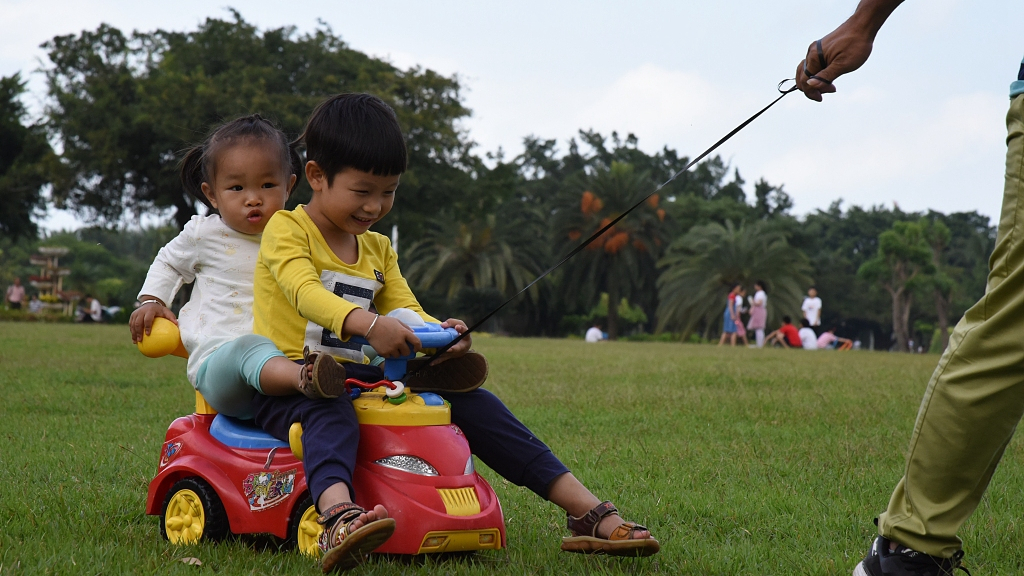

Having two kids has always been a dream for 33-year-old Jiang Xingang.
In 2017, his dream came true when his second daughter was born.
Both Jiang and his wife were the only children in their families. They know how hard it will be to take care of four seniors and kids. And that's why they don't want their children to bear the same burden in the future.
With the relaxation of the one-child policy three years ago, they started preparing to have one more baby.
"As the only child in the family, I felt very lonely. I hope my children have someone to accompany and to share their happiness and sorrows. I believe that's what most parents who have two children want," said Jiang Xingang.
Many Chinese wish to have more children, while some couples don't even want one.
New births in China fell to 15.23 million last year, compared to 17.86 million in 2016 and 17.23 million in 2017.
Since early 2016, China has allowed all married couples to have two children.
"Chinese women's social statuses keep rising. That's one of the reasons why we have declining fertility rates. Now we can see the two-child policy is working," said Zhang Yuanzhen, the vice principal of the Henan Health Care College.
By loosening-up the one-child policy, the country hopes to cope with the nation's demographic shift: a rapidly aging population.
According to the National Bureau of Statistics, China has 158.31 million people aged 60 or above in 2018, while people older than 65 accounted for 11.4 percent of the entire population.
"Aging is a global phenomenon," said Wang Zili, director of the Health Commission's Family Planning Department of central China's Henan Province, adding that economically advanced countries were all dealing with an aging society. "China's one-child policy is not responsible for our aging issue."
Many parents call for a complete lift of family planning policies so that they would be allowed having as many babies as they want. But experts say that won't stop the aging problem, at least not in the short term.
They say demographic shifts are a complicated issue, one that requires time and a combination of new policies to work together.

Copyright © 2018 CGTN. Beijing ICP prepared NO.16065310-3
Copyright © 2018 CGTN. Beijing ICP prepared NO.16065310-3